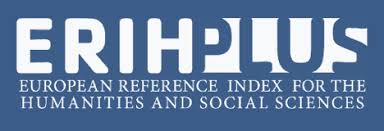№2, 2025
In a globalizing information society, the development of mechanisms for more efficient use of online media resources is increasingly important. Such mechanisms are significant for the effective management of information flows, formation of public opinion and safeguarding of national information security. In terms of digital transformation, the rapid dissemination and constant evolution of media content require continuous monitoring and evaluation. In this context, monitoring of media resources plays a significant role in identifying the social situation of society, public opinion trends, as well as political and economic dynamics of a country. The article explores the technological capabilities and functional advantages of modern tools used for monitoring online media resources, including automated monitoring systems. It also examines existing conceptual and methodological approaches to monitoring online media, and assesses their areas of application and effectiveness. Furthermore, the article provides insight into the capabilities of online media monitoring systems, and presents the structural components of the monitoring system, which include the collection, processing, classification and visualization of data for systematic information analysis. The article also reviews measures undertaken to improve the media environment in Azerbaijan and enhance its competitiveness, alongside legislative framework. Taking into account international experience, the article proposes the establishment of a monitoring center for assessing online media activities in Azerbaijan and gives recommendations regarding the activity and potential capabilities of this center (pp.107-115).
- Abdullayeva, S. (2023). Comparative analysis of approaches to monitoring and evaluating Internet media, XXII International Scientific and Technical Conference Development of Informatization and the State System of Scientific and Technical Information - RINTI-2023, Minsk, 98-102 (in Russian)
- Alguliev R.M., Abdullaeva S.R. (2017). The Role and Objectives of Media Monitoring in the Media Management, VSU Bulletin. Series: Philology. Journalism, 1, 79-84. (in Russian)
- Alguliyev Rasim M., Aghayeva Saadat R. (2016). Online media monitoring: Current state, problems and development prospects. Problems of Information Society, 7(1), 56–62. http://doi.org/10.25045/jpis.v07.i1.07
- Alguliyev Rasim M., Nabibayova Gulnara Ch., Abdullayeva Saadat R. (2020). Evaluation of Websites by Many Criteria Using the Algorithm for Pairwise Comparison of Alternatives, I.J. Intelligent Systems and Applications, MECS Press, 6, 64-74. DOI: 10.5815/ijisa.2020.06.05
- Belousov Roman L., Sorokov Nikita K., Motorkov Anton A. (2015). Conceptual Model of the System for Monitoring and Analysis of Internet Resources Data, T-Comm Magazine - Telecommunications and Transport, 9. 51 (in Russian)
- Bing Ads (2025). https://secure.bingads.microsoft.com (in Russian)
- Decree of the President of the Republic of Azerbaijan on Deepening Reforms in the field of media in the Republic of Azerbaijan (2021). January 12. https://e-qanun.az/framework/46675 (in Azerbaijani)
- Digital 2025: Global Overview Report (2025). https://datareportal.com/reports/digital-2025-global-overview-report
- Explore digital discourse across news (2025). https://www.mediacloud.org/
- Fast Results with Targeted Digital Marketing (2025). https://alexamediasolutions.com/
- Google AdSense (2025). http://google.com/adsense
- Gubarev I. D., Kurilkin A. V., Zmievsky A. F. (2015). Conceptual Model of the Software Complex for Monitoring Mass Media on the Internet, “Object Systems”. 114-118 (in Russian)
- Ismayilov A. (2022). The initial stage of preparation for the Media Registry completed,
- https://azertag.az/xeber/Ahmed_Ismayilov_Media_Reyestrine_hazarligin_ilkin_merhelesi_artiq_basa_chatib-2221508 (in Azerbaijani)
- Kalibri Media Monitoring Tools (2025). https://www.kalibri.az/ (in Azerbaijani)
- Makarets, A. B. (2009). Methodology for assessing the quality of marketing communications of university websites / A. B. Makarets // Open Education. 4. 46–56. (in Russian)
- Media Cloud Search (2025). https://www.mediacloud.org/media-cloud-search
- Media İmpact Project (2025). Shifting Narrative Change into High Gear. https://www.mediaimpactproject.org/narrativechangestrategy.html
- Media Monitoring Center (2025). https://medyatakip.com.tr/az/ (in Azerbaijani)
- Media Trends (2025). http://mediatrends.az/ (in Azerbaijani)
- Napoli, P. M. (2011). Audience evolution: New technologies and the transformation of media audiences. Journal of Communication 61, E1–E4, 248
- Pashayeva G. (2025). Formation and development of the information society in Azerbaijan (1969-2003 years), Problems of Information Society, 16, 1, 85-93. http://doi.org/10.25045/jpis.v16.i1.10
- Pavlik, J. (2001). Journalism and New Media. New York: Columbia University Press. 272 http://dx.doi.org/10.7312/pavl11482
- Shevchenko, A. V. (2006). Monitoring of the information and communication system: approaches and challenges, Journal “Sociology of Power”, 3, 98-109 (in Russian)
- Trilling, D., Tolochko, P., Burscher, B. (2017). From newsworthiness to shareworthiness: How to predict news sharing based on article characteristics. Journalism Studies, 18(11), 1377–1391. https://journals.sagepub.com/doi/abs/10.1177/1077699016654682
- Yandex.Direct (2025). http://www.direct.yandex.ru (in Russian)
- Zhang B. and Vos M. (2014). Social media monitoring: methods, benefits and difficulties for international companies, Corporate Communications: International Journal, 19 (4), 371-383. DOI:10.1108/CCIJ-07-2013-0044





.jpg)









